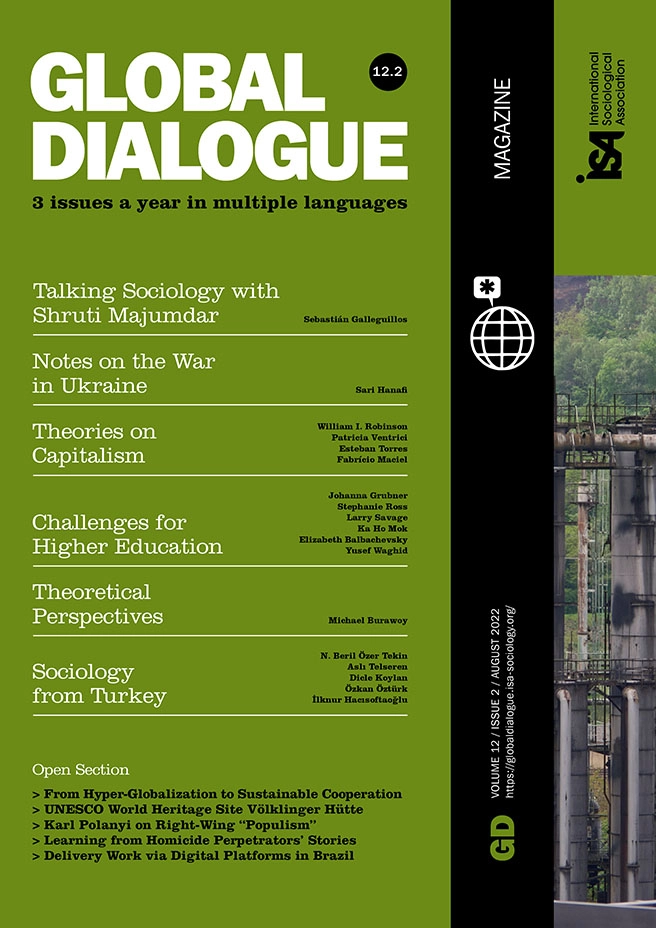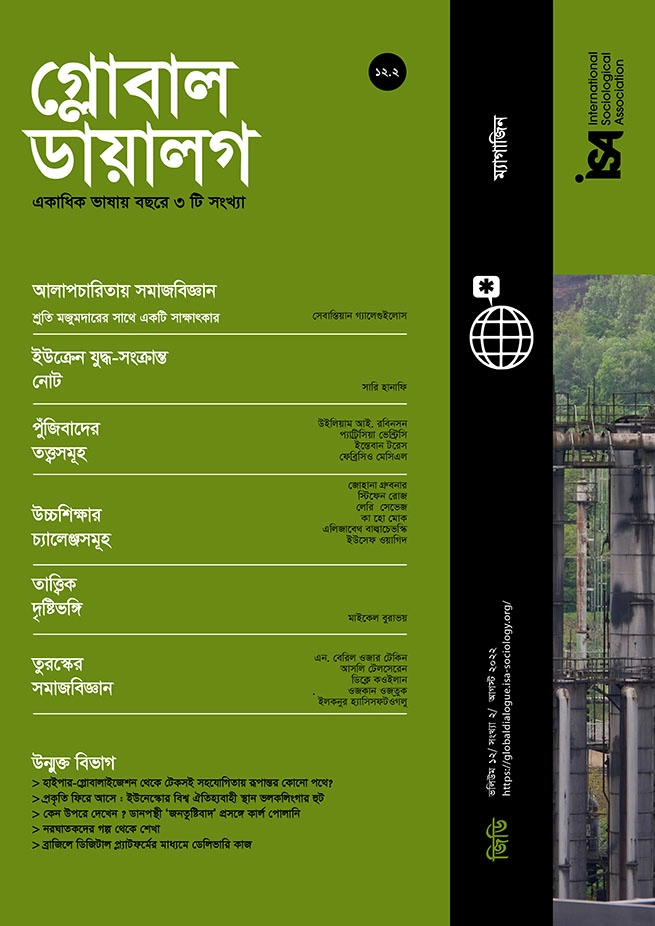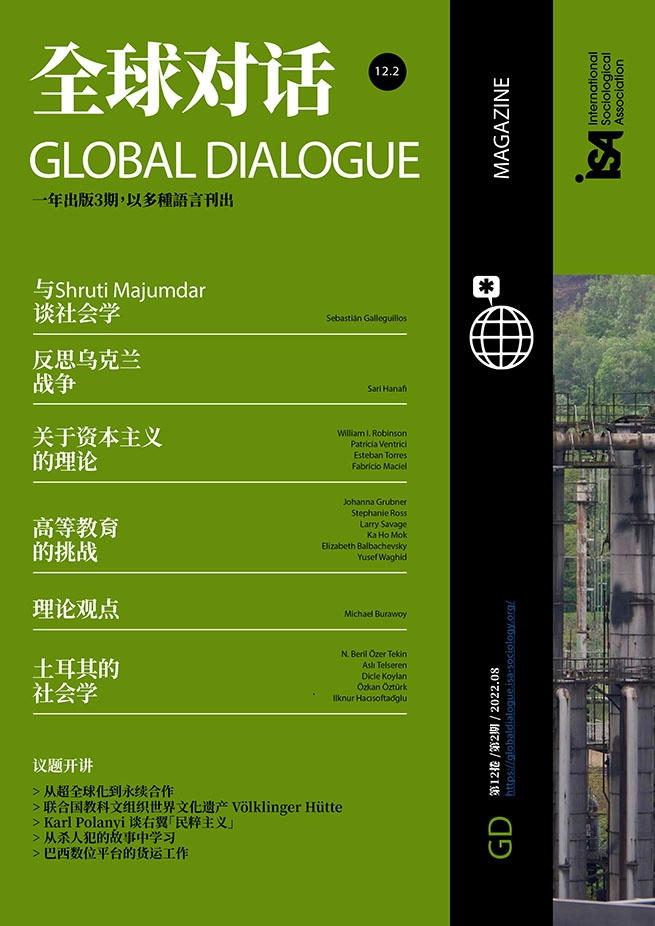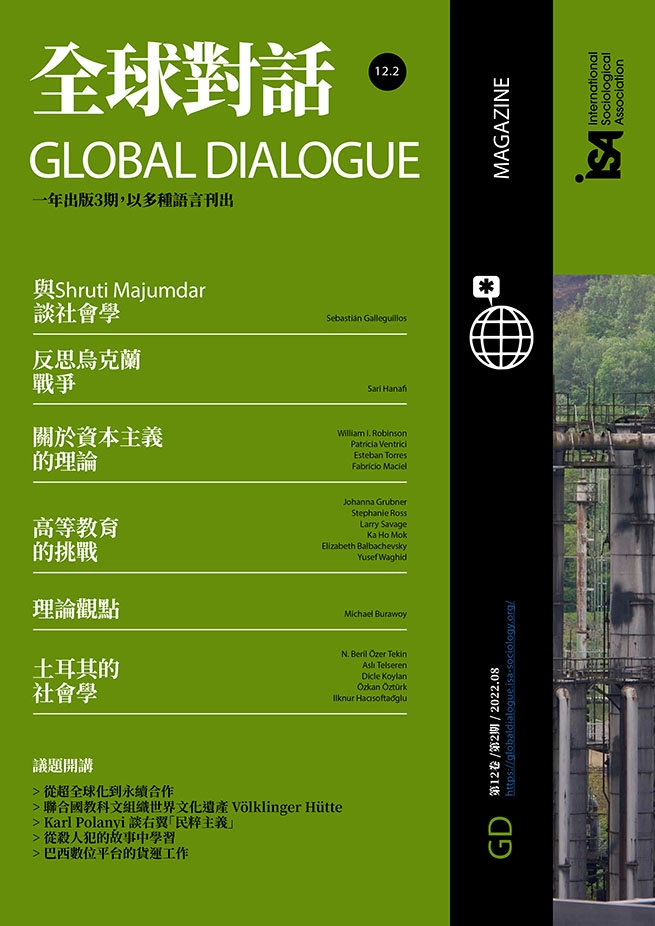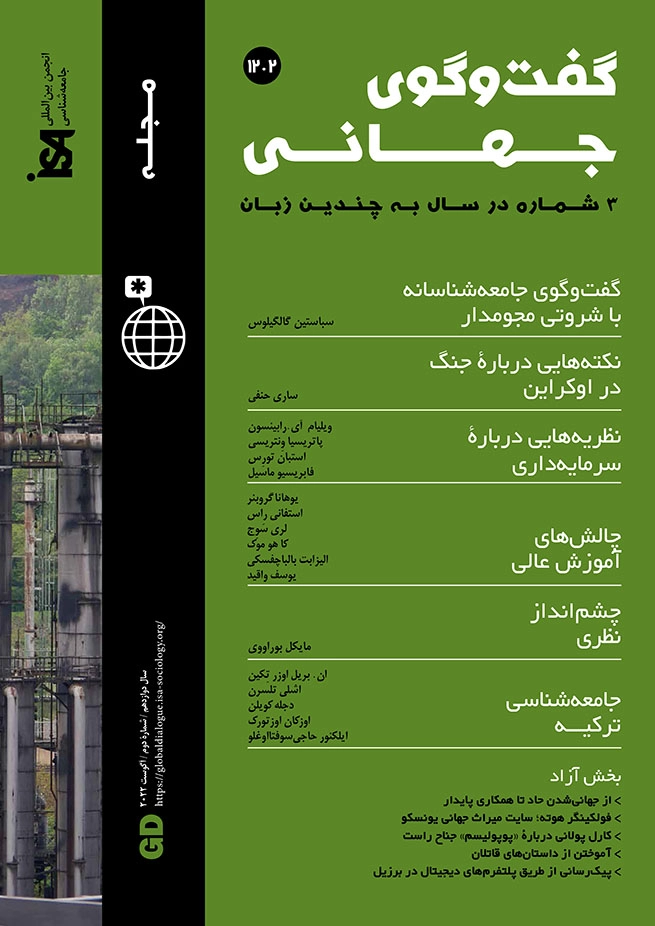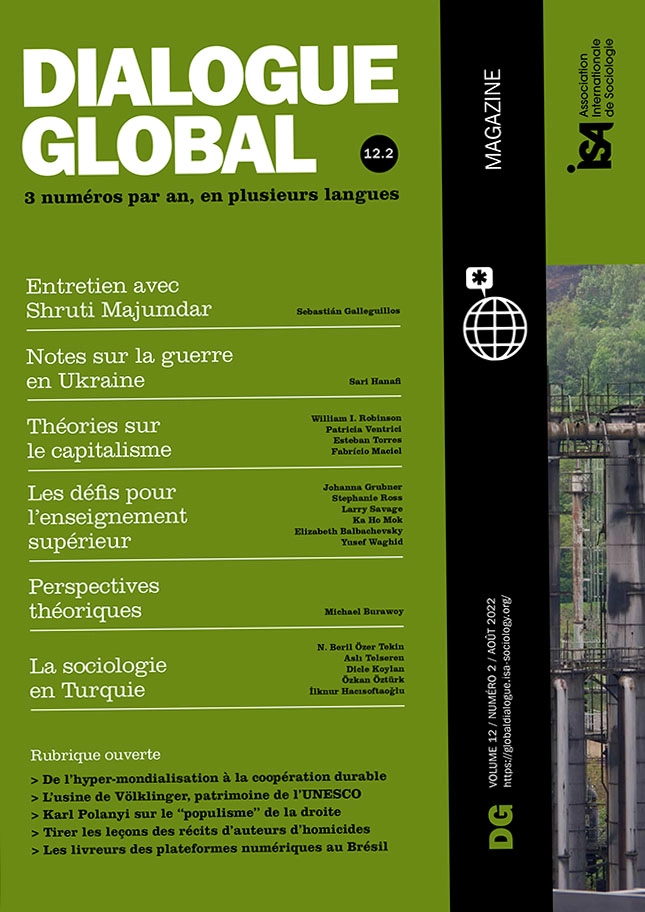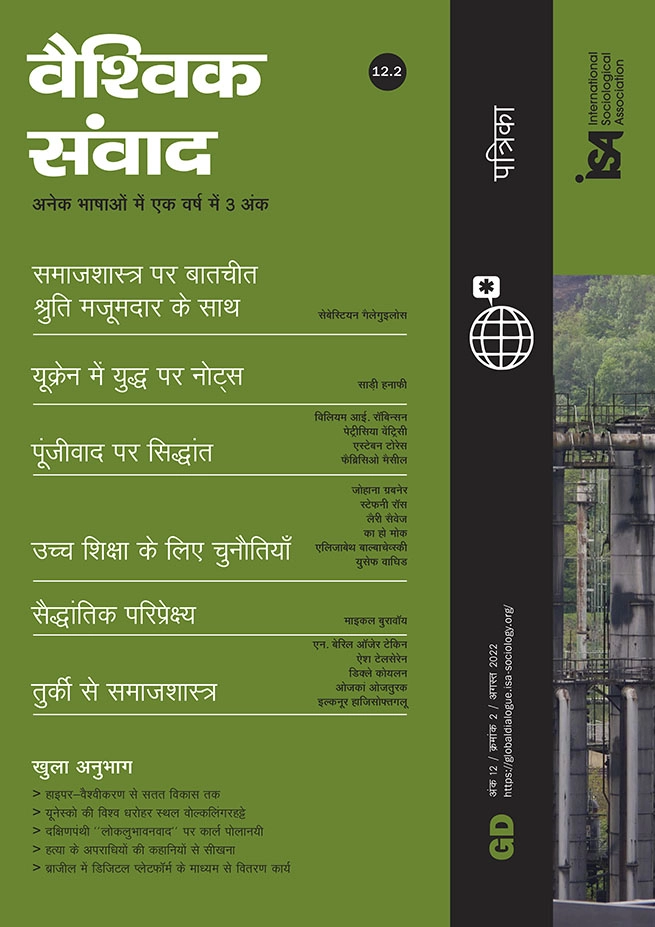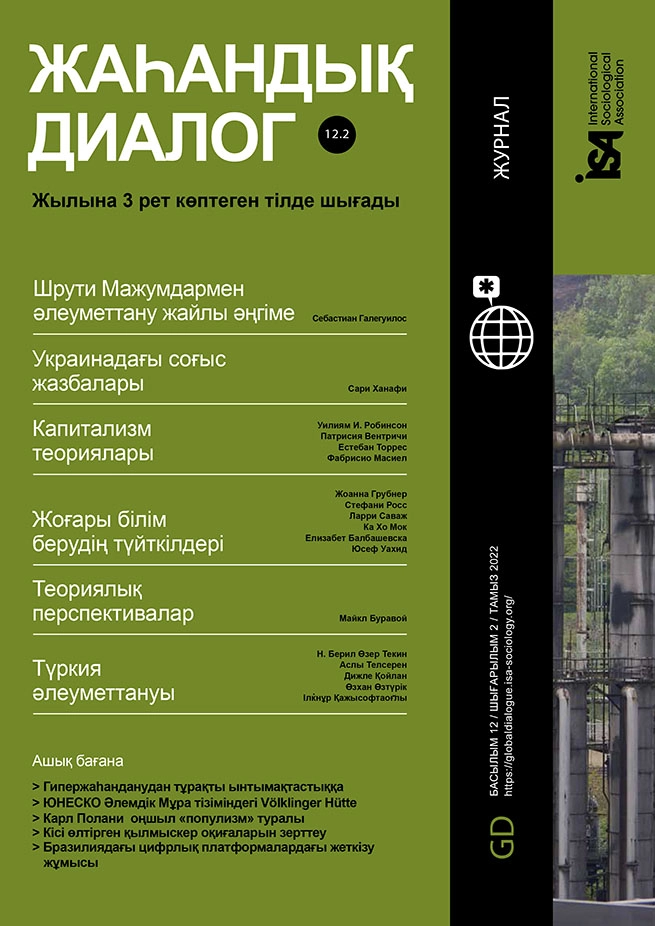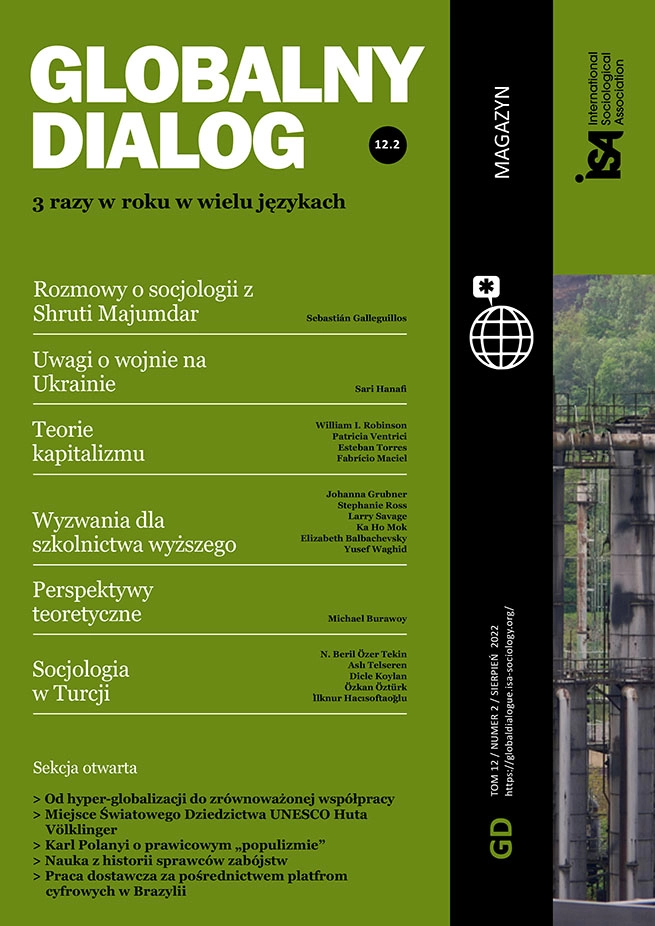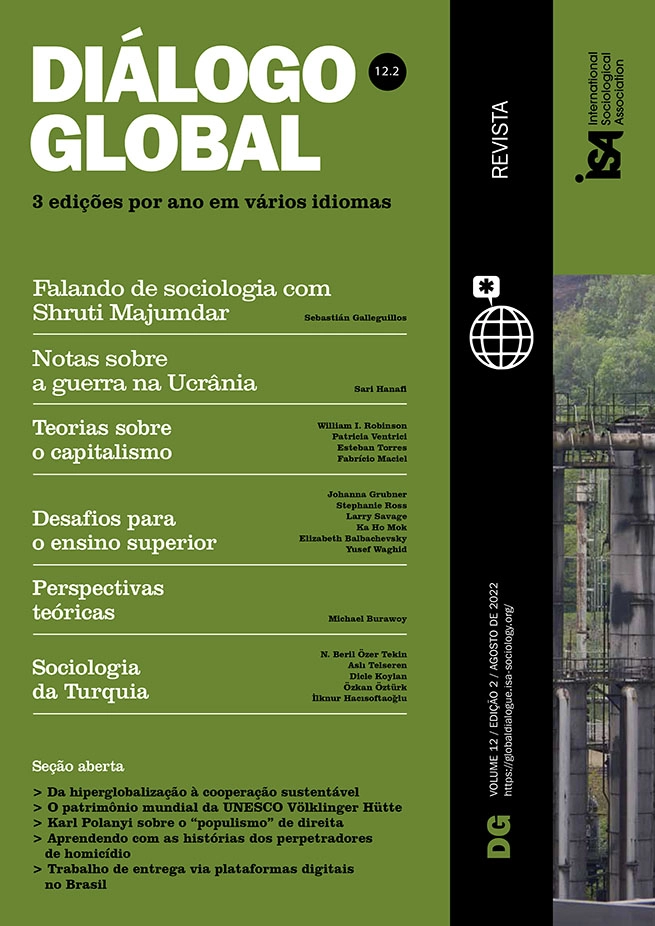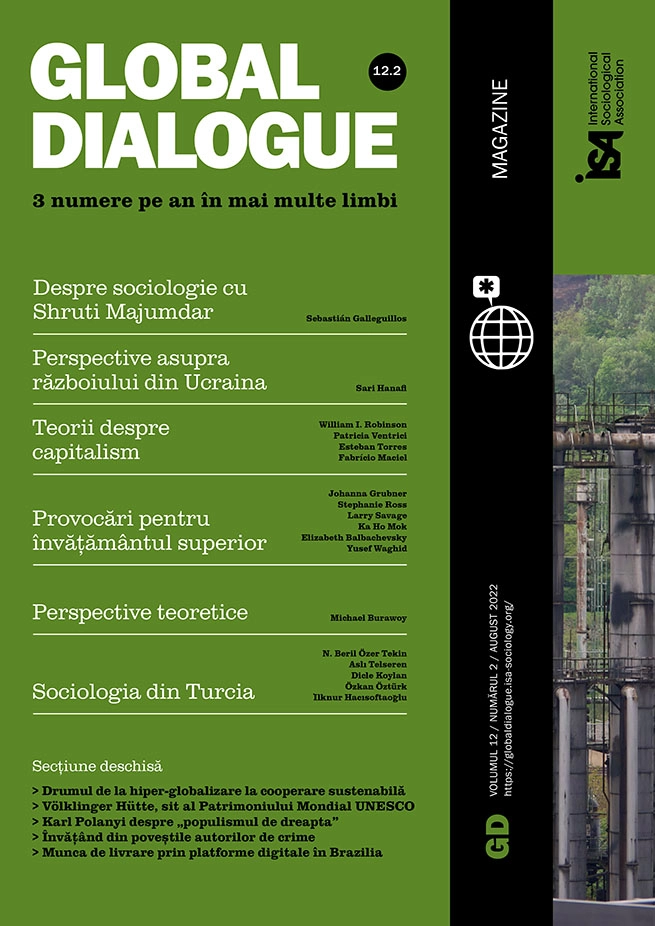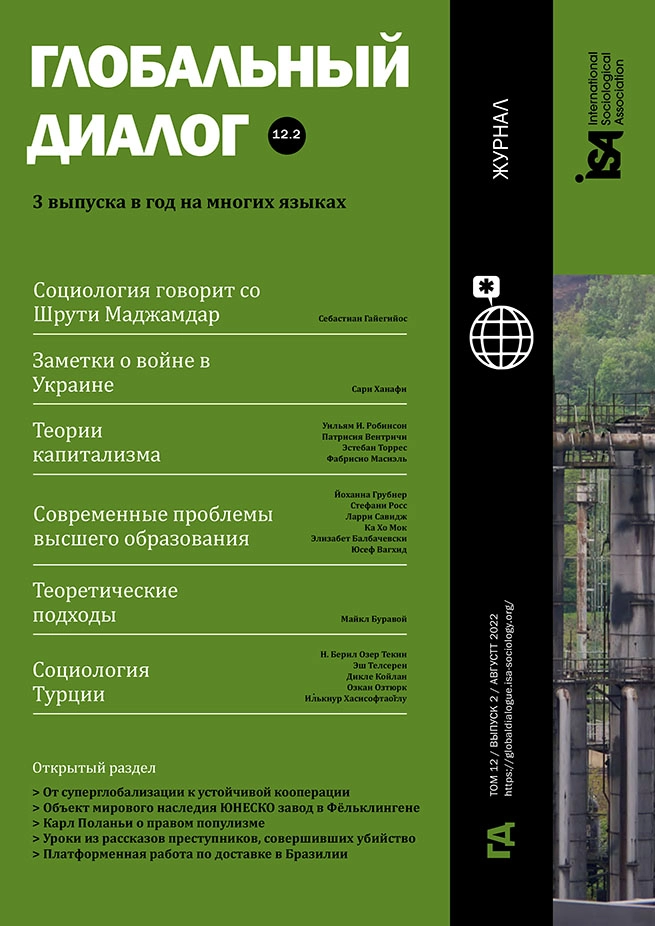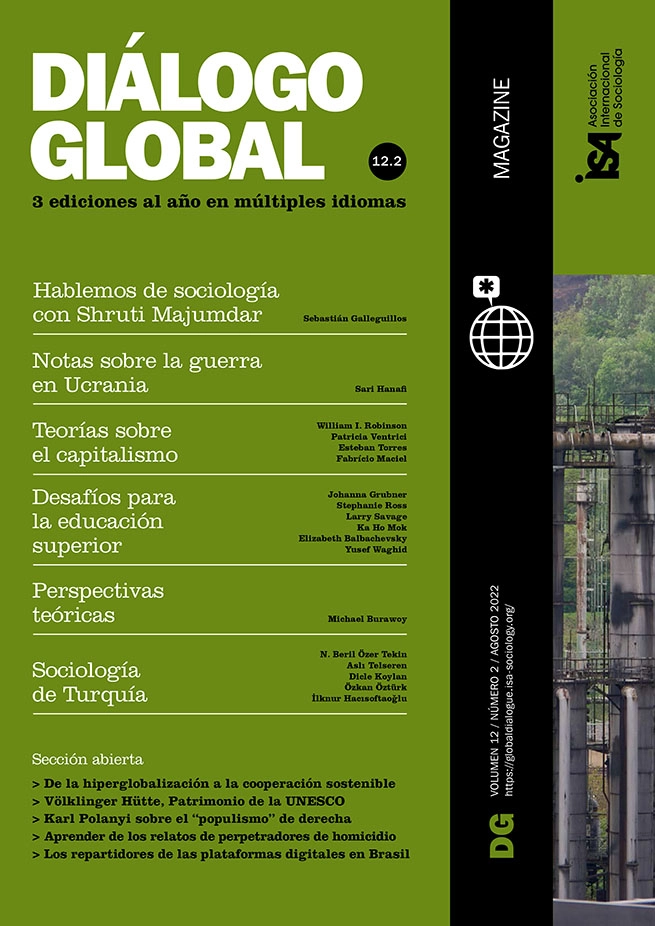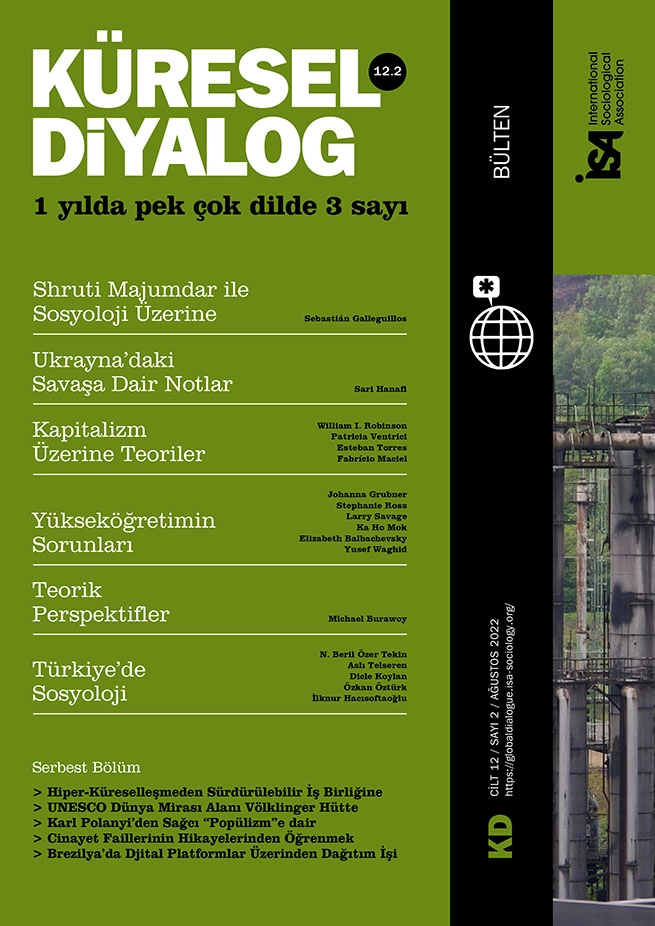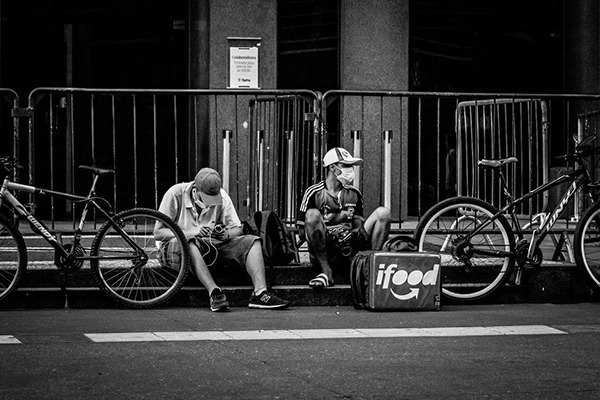Drawing on primary empirical data and sociological reflection, we investigate the impact of the pandemic on the working conditions of delivery workers in Brazil. We also seek to analyze whether this impact can influence workers’ subjective understanding of inequality. We start from the hypothesis that the health crisis has not created such inequality (internal to capitalism), but aggravated it. That is, it has potentialized the degradation of working conditions, focusing on working hours, payment and risks, and deepening the contradictions of the labor-capital conflict. In our empirical research, we use an original database, with a sample of one hundred digital platform deliverers in Brazil. These data were obtained by answers on Google Forms through social networks, focusing on groups of deliverers in the southeast, northeast, and mid-west regions of Brazil. The responses were received between March and May 2021, and include quantitative and qualitative data.
Uberization and labor-capital conflict
Far from understanding the Uberization of labor as a complete historical novelty, we must situate it within social materiality. That is, it does not represent an incompatibility or deviation from the way the pattern of capitalist accumulation has been maintained since its origin. The social relationship that characterizes Uberized work is that of a commodification of labor power, whose necessity is explained by the previous expropriation of the means of living. This is the social condition of subordinate labor in capitalism and therefore independent of legal status.
While Uberization is not to be understood as a historical novelty, it is necessary to understand the contours of this phenomenon in the contemporary scenario. In the case of delivery workers in Brazil, the perception of inequality in the relationship between workers and platforms seems to be largely based on the sharing of the daily and urban experience of work. Even though the fragmentation of the work process is increasing, the ways of riding through the city and meeting others produce meanings of their own about this relationship.
Moreover, by being eminently relational, the activity of delivery makes explicit the most basic characteristic of human work: the fact that it is a process of mediation of reality and of development of intersubjective relations. This is an important aspect for the construction of perceptions about inequalities, as well as for the collective articulation of protest movements. In what follows, we present the main results obtained from our empirical research.
The Google Forms questionnaire
When asked about the number of hours per day they delivered during the pandemic, most respondents (42%) said they worked nine to twelve hours, followed by those that indicated working eight hours (20%) and thirteen hours or more (13%). When asked about the working hours in the period before the pandemic, and if we take as the sample the number of respondents who were already making deliveries in that period (66 respondents), 39.3% worked nine to twelve hours, 22.7% eight hours, and 9% thirteen hours or more. There is, therefore, an increase in hours worked.
As for their monthly income from deliveries, during the pandemic the largest portion (25%) said they earned on average less than the Brazilian minimum wage (which was equivalent to 1,100 reais at the time of the answers), followed by 23% who indicated earning between 1,100 and 1,650 reais. In comparison, 15.3% stated that they received a lower remuneration than the current minimum wage in the period before the pandemic (considering the same value of 1,100 reais for the minimum wage). Most respondents (about 37%) stated that before the pandemic they earned between 2,750 and 3,300 reais, while during the pandemic only 15% earned this average remuneration. This shows a significant drop in monthly remuneration, even though the demand for these services and the average working hours have increased.
There is, therefore, a clear increase in the proportion of respondents who work thirteen or more hours per day, as well as those who earn less than the minimum wage per month. Remuneration, by the way, seems to be a determining factor in the subjective perception of the inequalities of platform work, especially when considering that for about 84% of the respondents this is their only source of income. That is, far from serving as a source of complementary remuneration, this work is an integral part of workers’ income in Brazil.
In terms of demands, the demand for an increase in payment (91% of the answers) takes absolute prominence, followed by the end of unjustified blockades, accident insurance, food allowance, greater autonomy, labor benefits, and a signed employment contract. Less than 20% of the respondents signaled this last element (regulation via employment contract) as part of their demands. A possible explanation is that, in a moment of exacerbation of a broad social crisis, the most visible aspects of inequality stand out. The monetary dimension of this relationship has the power to embody, most explicitly, the social contradictions of the dynamics of this labor.
As for the reasons given for seeking delivery work, almost all our respondents mentioned the need to earn an income. Regarding the socio-demographic profile, 98% of the respondents were men, 54% identified themselves as brown or black, and most of them were young. A majority of respondents (24%) were between 31 and 35 years old, followed by those between 21 and 25 (19%), between 35 and 40 (18%), and between 25 and 30 (17%). This seems to reflect, to a large extent, the fact that young people are the group most affected by unemployment. As for education, 77% of the respondents had a high school and/or college degree. Finally, 33 respondents stated that they had already suffered accidents at work, but only one had received some support from the platform. These data show that the COVID-19 pandemic has made the contradictions and inequalities of the labor-capital conflict in Brazil more explicit, amplifying the precariousness of the working conditions of delivery workers.
Bruna da Penha, Rio de Janeiro State University (UERJ), Brazil <brunapmcoelho@gmail.com>
Ana Beatriz Bueno, Rio de Janeiro State University (UERJ), Brazil <anabeatrizbuenoadv@gmail.com>




